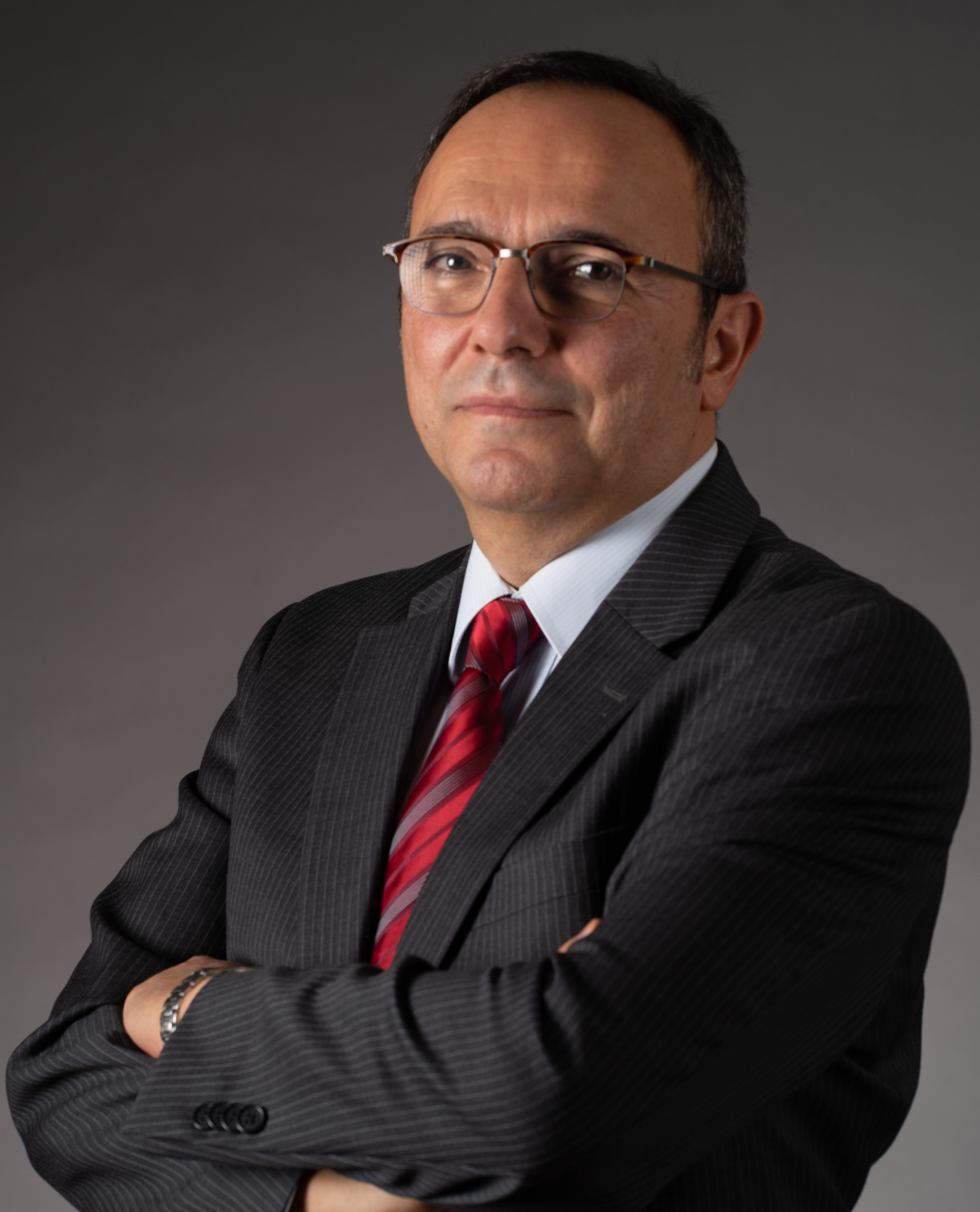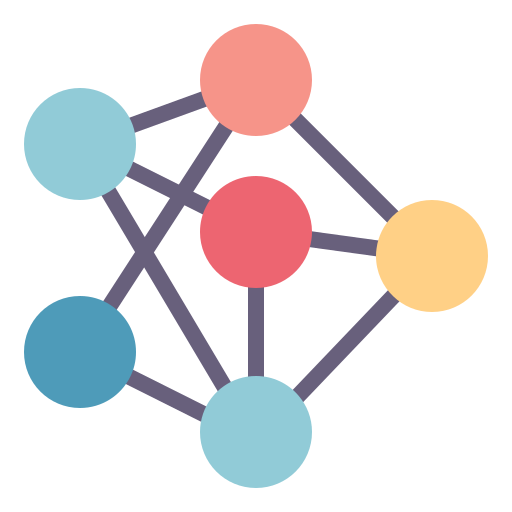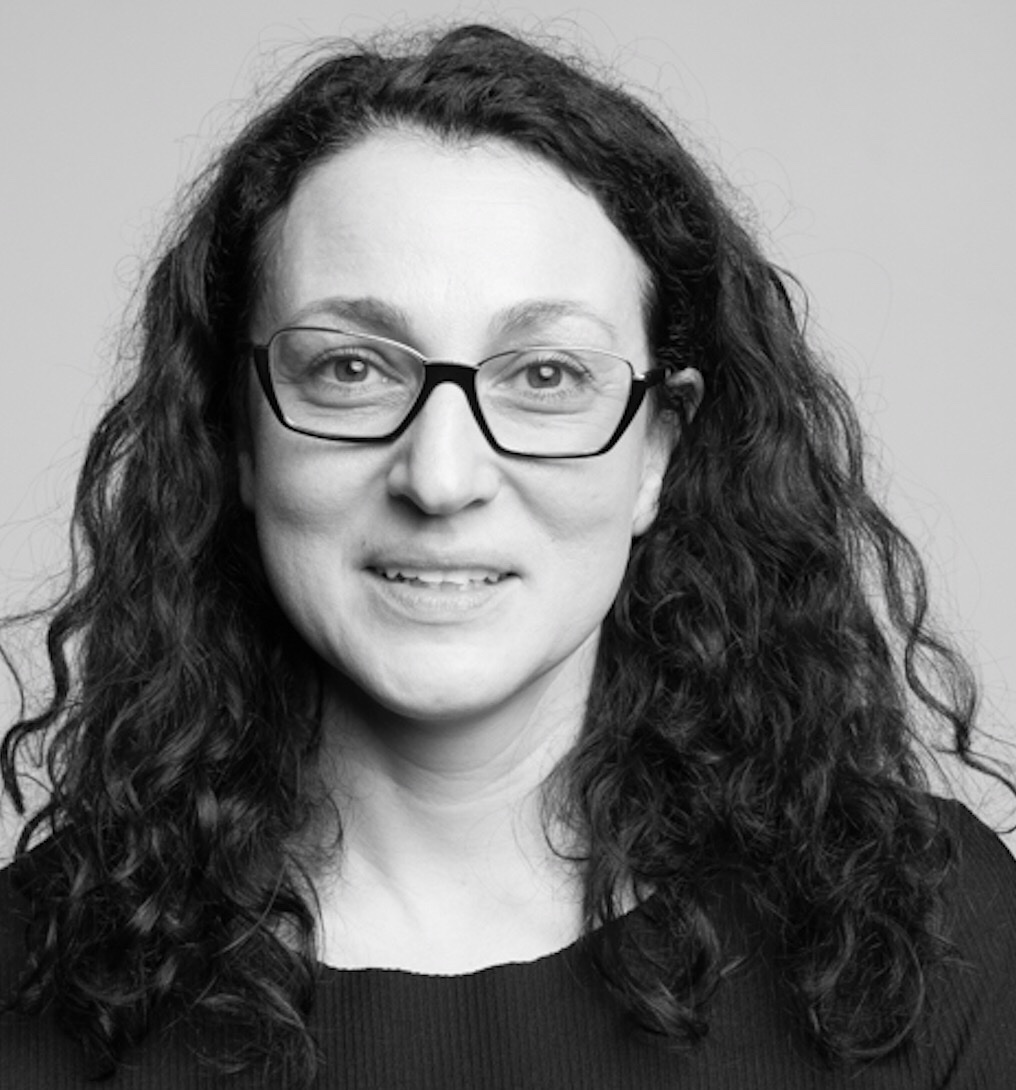Key facts
Information about SEBD are available at http://sebd.org/
- History: A walk down memory lane (in Italian)
- The steering committee: Present and past members
- Previous editions: From 1993 to 2023, from Gizzeria to Galzignano Terme
SEBD 2023
The thirty-first edition of the Italian Symposium on Advanced Database Systems (SEBD - Sistemi Evoluti per Basi di Dati) is organized by the Intelligent Interactive Information Access Hub of the Department of Information Engineering of the University of Padua, and will take place in Galzignano Terme (Italy) from the 2nd of July to the 5th of July 2023.
The symposium is the major annual event of the Italian database research community at large (English is the official language of the conference). The symposium is thought of as a gathering forum to meet, discuss and exchange experiences among all those, both in the academy and industry, who are interested in database systems and in all their broad range of applications.
SEBD 2023 is a single-track conference.
SEBD 2023 invites two kinds of contributions: full papers (up to 12 pages) and discussion papers (up to 8 pages).
Taste of Time Award
Taste of Time Award 2023 Winner
Antonio Albano, C. Brasini, Milena Diotallevi, Giorgio Ghelli, Renzo Orsini. A Guided Tour of the Fibonacci System . Edition: SEBD 1994
Taste of Time Award 2023 Honorable Mention
Domenico Beneventano, Sonia Bergamaschi, Stefano Lodi, Claudio Sartori.
Reasoning with Constraints in Database Models . SEBD 1994
SEBD (Symposium on Advanced Database System) is the major annual event of the Italian database research community. It is thought of as a gathering forum to meet, discuss, and exchange experiences among all people from academia and industry who are interested in database systems and in all their broad range of applications.
SEBD 2022 marked the 30th edition, a remarkable achievement, representing a tangible trace of the scientific contributions of the Italian database community, its evolution over a long period of time, and its liveliness. To celebrate this achievement, SEBD 2022 introduced the “Taste of Time” Award (TTA) whose purpose is to recognize seminal contributions and to retrace the history of the Italian database community by selecting significant (AND TASTY 😁) papers from past editions of SEBD.
SEBD 2023 continues this brand new tradition and calls for nominations for the TTA 2023!
The ultimate goal of the TTA is to keep the tradition of the SEBD community alive, to contextualize the most important research lines and make sense of their evolution, and to inspire new generations of researchers by discussing how key challenges have been addressed, which ones are still open, and what can follow-up from them.
The SEBD Steering Committee will select papers based on the following impact criteria
- impact within (a subarea of) the database research community
- impact outside of the database research community
- impact on the non-research community
- impact outside of the database research community
Papers eligible for the TTA are either original research published at SEBD or extended abstracts of papers published in main venues for the database community. In both cases evidence about the impact of the paper (or related paper, in case of extended abstracts) has to be provided, e.g., follow-up works (papers, systems, …), new theories and models, social and/or industrial impact, citations, … The TTA will consider, each year, a scrolling window of 3 years, starting from the first SEBD 1993, from which to select papers for the TTA.
Eligible papers for this round were those published in:
- 2nd SEBD 1994: Rimini, Italy (DBLP entry)
- 3rd SEBD 1995: Ravello, Italy (DBLP entry)
- 4th SEBD 1996: Pisa, Italy (DBLP entry)
- 3rd SEBD 1995: Ravello, Italy (DBLP entry)
Committee
- Maristella Agosti (Università di Padova) - chair
- Elena Baralis (Politecnico di Torino)
- Domenico Saccà (Università della Calabria)
- Letizia Tanca (Politecnico di Milano)
- Riccardo Torlone (Università Roma Tre)
Program
All the events will take place in Galzignano Terme.

Doctoral Consortium Booster Session
Chairs: Stefano Marchesin and Letizia Tanca
Enea Napolitano (University of Naples Federico II)
Trajectory Mining for Smart Cities: A Focus on Indoor Localization using 5G Technology
Rosa Porro (Università degli studi di Bari)
Data science approaches to support the design of crowdfunding campaigns
Claudia Greco (Università della Calabria)
IoT Security: Exploring Strategies and Approaches
Simona Fioretto (Università degli studi di Napoli Federico II)
Business process extraction from documents with AI
Angelo Mozzillo (University of Modena and Reggio Emilia)
Maximizing Efficiency in Existing Data Preparation Pipelines
Gurban Aliyev (University of Pisa)
Analysis, Prediction and Mitigation of Exposure to Vehicular Air Pollution Based on Multi-Source Urban Data
Luca Sala (University of Modena and Reggio Emilia)
Knowledge Extraction and Cross-Language Data Integration in Digital Libraries
Giulio De Sabbata (University of Modena and Reggio Emilia)
Survey Data System: a Framework to Enhance Response Rate in Clinical Studies
Lisa Trigiante (Università degli studi di Modena e Reggio Emilia)
Privacy-Preserving Data Integration for Health
Fabrizio Boninsegna (University of Padua)
Locality Sensitive Hashing of Trajectories Under Local Differential Privacy
Emilia Lenzi (Politecnico di Milano)
Urban structure and environmental performances: a framework for discovering corresponding pattern
Gabriele Lagani (University of Pisa)
Scaling Bio-Inspired Neural Features to Real-World Image Retrieval Problems
Francesco Periti (University of Milan)
Contextualized Semantic Shift Detection (5m)
Divya Pragna Mulla (University of Salento), Mario Alessandro Bochicchio (University of Salento), and Antonella Longo (University of Salento)
VIROSENSOR: An innovative mobile application for predicting the risk of airborne transmission of COVID-19 through the data-driven approaches with real-time data from biosensor systems
Davide Coccomini (ISTI-CNR).
Deepfake Detection: Challenges and Solutions

Coffee Break

Doctoral Consortium Poster Session

Welcome reception
Galzignano Resort

Keynote Yannis Ioannidis
User-Defined Functions in Relational Databases: Challenges and Promising Solutions based on YeSQL

Coffee Break

Learning frameworks and structures
Chair: Davide Lanti (Libera Università di Bolzano)
Massimo Coluzzi (University of Applied Sciences and Arts of Southern Swizerland), Amos Brocco (University of Applied Sciences and Arts of Southern Swizerland). Consistently Faster: A survey and fair comparison of consistent hashing algorithms (20m)
Ilaria Bartolini (University of Bologna), Marco Patella (University of Bologna).
From RAM3S to SPAF: Towards a Stream Processing Abstracting Framework (10m)
lessia Amelio (University "G. d'Annunzio" Chieti-Pescara), Gianluca Bonifazi (Università Politecnica delle Marche), Francesco Cauteruccio (Università Politecnica delle Marche), Enrico Corradini (Università Politecnica delle Marche), Michele Marchetti (Università Politecnica delle Marche), Domenico Ursino (Università Politecnica delle Marche), Luca Virgili (Università Politecnica delle Marche).
DLE4FC: a deep learning ensemble to identify fabric colors (10m)
Corrado Loglisci (Universita degli Studi di Bari 'Aldo Moro', Ivan Diliso (Universita degli Studi di Bari 'Aldo Moro'), Donato Malerba (Universita degli Studi di Bari 'Aldo Moro').
A Hybrid Quantum-Classical framework for binary classification in online learning (20m)

Entity Extraction and Matching
Chair: Giovanni Simonini (Università di Modena e Reggio Emilia)
Andrea Baraldi (Università di Modena e Reggio Emilia) Francesco Del Buono (University of Modena e Reggio Emilia) Francesco Guerra (University of Modena e Reggio Emilia) Giacomo Guiduzzi (University of Modena and Reggio Emilia) Matteo Paganelli (Università di Modena e Reggio Emilia) Maurizio Vincini (University of Modena e Reggio Emilia). Interpretable Entity Matching with WYM (10m)
Alfio Ferrara (Università degli Studi di Milano), Darya Shlyk (Università degli Studi di Milano).
SpanIE: A span-based approach to OpenIE (10m)
Valerio Bellandi (Università degli Studi di Milano), Silvana Castano (Università degli Studi di Milano), Stefano Montanelli (Università degli Studi di Milano), Davide Riva (Università degli Studi di Milano).
A Service Architecture for AI-based Legal Knowledge Extraction (10m)

Lunch
Sporting Restaurant – TERRA
Knowledge Bases and Data Semantics
Chair: Federica Mandreoli (Università di Modena e Reggio Emilia)
Claudia Diamantini (Universita' Politecnica delle Marche), Domenico Potena (Universita' Poltiecnica delle Marche), Emanuele Storti (Università Politecnica delle Marche). Analytic query answering in a Semantic Data Lake (10m)
Domenico Lembo (University of Rome), Maurizio Lenzerini (Sapienza University of Rome), Antonella Poggi (Sapienza University of Rome), Roberta Radini (Istituto Nazionale di Statistica (ISTAT)), Michele Riccio (Istituto Nazionale di Statistica (ISTAT)), Valerio Santarelli (OBDA Systems S.r.l.).
Bridging the gap between micro and macro data: Ontologies to the rescue (10m)
Giovanni Maria Biancofiore (Polytechnic University of Bari), Vito Walter Anelli (Polytechnic University of Bari), Fedelucio Narducci (Politecnico di Bari), Tommaso Di Noia (Politecnico di Bari), Eugenio Di Sciascio (Politecnico di Bari).
Semantic Interpretation of BERT embeddings with Knowledge Graphs (10m)
Zhenzhen Gu (Free University of Bozen-Bolzano), Diego Calvanese (Free University of Bozen-Bolzano), Marco Di Panfilo (Free University of Bozen-Bolzano), Davide Lanti (Free University of Bozen-Bolzano), Alessandro Mosca (Free University of Bozen-Bolzano), Guohui Xiao (University of Bergen).
Ontology-Based Data Federation - A Framework Proposal (10m)
Ada Bagozi (University of Brescia), Devis Bianchini (University of Brescia), Valeria De Antonellis (University of Brescia), Massimiliano Garda (University of Brescia), Michele Melchiori (Università degli Studi di Brescia ).
Multi-perspective description and search of Smart Contracts for DApp design (10m)
Antonio De Nicola (ENEA), Anna Formica (IASI-CNR), Ida Mele (IASI-CNR), Michele Missikoff (IASI-CNR), and Francesco Taglino (IASI-CNR).
Towards a formal approach to a Knowledge Base supporting Business Process Analysis (10m)

Data Quality
Chair: Donatello Santoro (Università della Basilicata)
Paolo Ciaccia (Università di Bologna), Davide Martinenghi (Politecnico di Milano), Riccardo Torlone (Roma Tre University). Injecting Conceptual Constraints into Data Fabrics (10m)
Francesco Parisi (University of Calabria), John Grant (University of Maryland).
How Many Inconsistencies Are In Your Database? (10m)
Fabio Azzalini (Politecnico di Milano), Cinzia Cappiello (Politecnico di Milano), Chiara Criscuolo (Politecnico di Milano), Sergio Cuzzucoli (Politecnico di Milano), Alessandro Dangelo (Politecnico di Milano), Camilla Sancricca (Politecnico di Milano), Letizia Tanca ("Politecnico di Milano").
Data Quality and Fairness: Rivals or Friends? (10m)

Poster Booster Session 1
Chair: Gianmaria Silvello (Università di Padova)
Guglielmo Faggioli (University of Padua), Thibault Formal (Naver Labs Europe), Stefano Marchesin (University of Padua), Stephane Clinchant (Naver Labs Europe), Nicola Ferro (University of Padua), Benjamin Piwowarski (CNRS) On the Limitations of Query Performance Prediction for Neural IR (4m)
Chiara Forresi (DISI - University of Bologna), Matteo Francia (DISI - University of Bologna), Enrico Gallinucci (DISI - University of Bologna), Matteo Golfarelli (DISI - University of Bologna)
On the optimization of query plans in multistores (4m)
Laura Menotti (University of Padua), Stefano Marchesin (University of Padua), Gianmaria Silvello (University of Padua)
An Ontology-Driven Knowledge Extraction Tool for Pathology Record Classification (4m)
Joseph Giovanelli (University of Bologna), Matteo Francia (DISI - University of Bologna), Matteo Golfarelli (DISI - University of Bologna)
Fine-grained Soil Moisture Monitoring with PLUTO (4m)
Emrul Hasan (Toronto Metropolitan University), Alfredo Cuzzocrea (Universitá della Calabria), Cherie Ding (Toronto Metropolitan University), Islam Belmerabet (iDEA LAB, University of Calabria)
An Innovative Framework for Supporting Multi-Criteria Ratings and Reviews over Big Textual Data (4m)
Alfredo Cuzzocrea (Universitá della Calabria), Islam Belmerabet (iDEA LAB, University of Calabria), Edoardo Serra (Boise State University)
Attribution Methods Assessment for Interpretable Machine Learning (4m)
Gianluca Bonifazi (Università Politecnica delle Marche), Francesco Cauteruccio (Università Politecnica delle Marche), Enrico Corradini (Polytechnic University of Marche), Michele Marchetti (Università Politecnica delle Marche), Giorgio Terracina (University of Calabria), Domenico Ursino (Università Politecnica delle Marche), Luca Virgili (Università Politecnica delle Marche)
NT4XAI: a framework exploiting network theory to support XAI on classifiers (4m)
GGianluca Bonifazi (Università Politecnica delle Marche), Francesco Cauteruccio (Università Politecnica delle Marche), Enrico Corradini (Polytechnic University of Marche), Michele Marchetti (Università Politecnica delle Marche), Domenico Ursino (Università Politecnica delle Marche), Luca Virgili (Università Politecnica delle Marche)
An ex-post analysis of the phenomenon of wash trading on NFTs (4m)
Sara Bonfitto (university of Milan), Paolo Perlasca (University of Milan), Marco Mesiti (University of Milan)
Towards the Construction of an RNA-centered Knowledge Graph (4m)
Alfio Ferrara (Università degli Studi di Milano), Sergio Picascia (Università degli Studi di Milano), Elisabetta Rocchetti (Università degli Studi di Milano)
A Discussion on Open Issues Regarding Human Value Detection in Arguments (4m)
Rosa Porro (Università degli studi di Bari), Thomas Ercole (Università degli studi di Bari), Giuseppe Pipitò (Università degli studi di Bari), Gennaro Vessio (University of Bari), Corrado Loglisci (Universita degli Studi di Bari 'Aldo Moro')
Predicting investor behavior and investment patterns in equity and lending crowdfunding campaigns (4m)
Fabio Giachelle (University of Padua), Stefano Marchesin (University of Padua), Gianmaria Silvello (University of Padua), Omar Alonso (Amazon)
CoreKB: A Web-based Platform for Searching Reliable Facts over a Medical Knowledge Base (4m)
Anna Dalla Vecchia (Università degli studi di Verona), Barbara Oliboni (University of Verona), Niccolò Marastoni (Università degli studi di Verona), Elisa Quintarelli (University of Verona)
ICARE: An Intuitive Context-Aware Recommender with Explanations (4m)
Antonino Ferraro (University of Naples "Federico II"), Antonio Galli (University of Naples "Federico II"), Valerio La Gatta (University of Naples "Federico II"), Vincenzo Moscato (University of Naples "Federico II"), Marco Postiglione (University of Naples "Federico II"), Giancarlo Sperlì (University of Naples Federico II), Flora Amato (University of Naples "Federico II")
HEMR: Hypergraph Embeddings for Music Recommendation (4m)
Irina Trubitsyna (University of Calabria)
DEGAIN as tool for Missing Data Imputation (4m)

Poster Session #1 with wine and snacks

Free time
Calcetto and other activities.

Coffee Break

Graph-based methods and applications
Chair: Andrea Baraldi (Università di Modena e Reggio Emilia)
Kiran Mukunda (University of Texas at Arlington), Abhishek Santra (University of Texas at Arlington), Sharma Chakravarthy (University of Texas at Arlington). The Challenge of Finding Degree Centrality Nodes in Heterogeneous Multilayer Networks (20m)
Alan Dearle (University of St Andrews), Graham Kirby (University of St Andrews), Özgür Akgün (University of St Andrews).
An Approach to Population Linkage using Graph Databases (10m)
Alfredo Cuzzocrea (Universitá della Calabria), Abderraouf Hafsaoui (iDEA lab, University of Calabria), Edoardo Serra (Boise State University).
Graph Representation Learning for Complex Security Problems (10m)
Davide Magnanimi (Politecnico di Milano), Stefano Ceri (Politecnico di Milano), Luigi Bellomarini (Banca d'Italia), Davide Martinenghi (Politecnico di Milano).
The Company Control Problem, Reactively (10m)

Querying
Chair: Ilaria Bartolini (Università di Bologna)
Marco Alessio (University of Padua), Guglielmo Faggioli (University of Padua), Nicola Ferro (University of Padua). A Modular Framework for Conversational Search Reproducible Experimentation (10m)
Marco Calautti (University of Milan), Sergio Greco ("Univ. of Calabria"), Heba Wagih (University of Trento), Tariq Mahmood (University of Calabria), Cristian Molinaro (University of Calabria), Irina Trubitsyna (University of Calabria).
Querying Data Exchange Settings Beyond Positive Queries (10m)
Giovanni Simonini (University of Modena and Reggio Emilia), Luca Zecchini (Università degli Studi di Modena e Reggio Emilia), Felix Naumann (Hasso Plattner Institute, University of Potsdam), Sonia Bergamaschi (Università di Modena e Reggio Emilia).
Entity Resolution On-Demand for Querying Dirty Datasets (10m)

Lunch
Sporting Restaurant – TERRA

Unsupervised learning in DBs
Chair: Donatella Firmani ("La Sapienza", Università di Roma)
Enzo Veltri (Università della Basilicata), Gilbert Badaro (EURECOM), Mohammed Saeed (EURECOM), Paolo Papotti (EURECOM). Attribute Ambiguity Discovery: A Deep Learning Approach via Unsupervised Learning (10m))
Shuyi Yang (Università di Torino, Intesa Sanpaolo), Mattia Cerrato (JGU Mainz), Dino Ienco (INRAE), Ruggero Pensa (University of Turin), Roberto Esposito (Università di Torino).
Fair Semi-supervised Representation Learning for Tabular Data Classification (10m)
Antonino Ferraro (University of Naples Federico II), Antonio Galli (Università degli studi di Napoli Federico II), Valerio La Gatta (University of Naples Federico II), Vincenzo Moscato (University of Naples "Federico II"), Marco Postiglione (Federico II), Giancarlo Sperlì (University of Naples Federico II).
Unsupervised anomaly detection in predictive maintenance using sound data (10m)

Poster Booster Session 2
Chair: Nicola Ferro (Università di Padova)
(1) Roberto Esposito (Università di Torino), Mirko Polato (University of Turin), Marco Aldinucci (University of Turin). Boosting Methods for Federated Learning (4m)
(2) Davide Di Pierro (Università degli Studi di Bari), Stefano Ferilli (University of Bari).
An API for Ontology-driven LPG Graph DB Management (4m)
(3) Cristian Martella (University of Salento), Antonella Longo (University of Salento).
Dataspaces in Urban Digital Twins: a Case Study in the Photovoltaics (4m)
(4) Giansalvatore Mecca (Universita della Basilicata), Donatello Santoro (Università della Basilicata), Enzo Veltri (Università della Basilicata).
Lightweight Extensible Frameworks for IoT Applications (4m)
(5) Luca Caviglione (CNR - IMATI), Carmela Comito (ICAR-CNR), Massimo Guarascio (ICAR-CNR), Giuseppe Manco (ICAR-CNR, IT), Francesco Pisani (ICAR-CNR), Marco Zuppelli (IMATI-CNR).
ORISHA: Improving Threat Detection through Orchestrated Information Sharing (4m)
(6) Heba Wagih (University of Trento), Marco Calautti (University of Milan).
Enhancing Ontological Query-Rewriting via Parallelization (4m)
(7) Daniele Traversaro (University of Genoa), Giovanna Guerrini (University of Genoa).
Two Introductory Data-driven Activities for Secondary Schools (4m)
(8) Tariq Mahmood (University of Calabria), Sergio Greco (University of Calabria), Seyedeh Leili Mirtaheri (Kharazmi University), Seyedeh Khadijeh Hashemi (Kharazmi University).
Machine Learning Techniques for Detecting Fraud in Credit Card Transactions (4m)
(9) Loredana Caruccio (University of Salerno), Domenico Desiato (University of Bari Aldo Moro), Giuseppe Polese (University of Salerno), Genoveffa Tortora (University of Salerno), Nicola Zannone (TU Eindhoven).
An approach to trade-off privacy and classification accuracy in machine learning processes (4m)
(10) Giovanni Buzzega (Università degli studi di Modena e Reggio Emilia), Veronica Guidetti ( Università degli Studi di Modena e Reggio Emilia), Federica Mandreoli (università di modena e reggio emilia), Luca Mariotti (Università degli Studi di Modena e Reggio Emilia), Andrea Belli (Expert.ai), Paolo Lombardi (Expert.ai).
Automated Knowledge Graph completion for Natural Language Understanding: known paths and future directions (4m)
(11) Angelica Liguori (University of Calabria), Simone Mungari (Università della Calabria), Ettore Ritacco (UNIUD), Francesco Ricca (University of Calabria), Giuseppe Manco (ICAR-CNR, IT).
Neuro-Symbolic techniques for Predictive Maintenance (4m)
(12) Marcello Bavaro (Politecnico di Milano), Tommaso Dolci (Politecnico di Milano), Davide Piantella (Politecnico di Milano).
BioVec-Ita: Biomedical Word Embeddings for the Italian Language (4m)
(13) Luca Gagliardelli (University of Modena & Reggio Emilia), George Papadakis (University of Athens), Giovanni Simonini (University of Modena and Reggio Emilia), Sonia Bergamaschi (Università di Modena e Reggio Emilia), Themis Palpanas (Université Paris Cité).
A general approach to Supervised Meta-Blocking (4m)
(14) Ada Bagozi (University of Brescia), Devis Bianchini (University of Brescia), Anisa Rula (University of Brescia ).
A Distributed Registry of Multi-perspective Data Services for the Internet of Production (4m)
(15) Andrea Avignone (Politecnico di Torino), Silvia Chiusano (Politecnico di Torino), Alessandro Fiori (Politecnico di Torino), Paolo Garza (Politecnico di Torino), Emanuele Marchetta (Politecnico di Torino).
A Novel DB CASE Tool for Relational Databases (4m)
(16) Eugenio Vocaturo (University of Calabria), Ester Zumpano (University of Calabria).
Multiple Instance Learning for Diabetic Retinopathy Detection (4m)

Poster Session #2 with cold beverages

Trip to Arquà Petrarca and Social Dinner
We will go by bus to visit the beautiful Arquà Petrarca. Afterward (20:00), we will have our social dinner in "La Montanella", a beautiful restaurant in the Euganean Hills. A DJ set will follow.

Keynote Carlo Curino
Tensor Query Processing: How to ride the AI investment wave for database analytics?

Coffee Break

Learning from data: Applications
Chair: Vincenzo Moscato (Università degli Studi di Napoli "Federico II")
Divya Pragna Mulla (University of Salento), Antonella Longo (University of Salento). SYystematic Literature Review on Mobile Applications on COVID-19 crisis (10m)
Donatella Firmani (Sapienza University), Giovanni Simonini (University of Modena and Reggio Emilia), Donatello Santoro (Università della Basilicata), Jerin George Mathew (Sapienza University), Luca Zecchini (Università degli Studi di Modena e Reggio Emilia).
Bridging the Gap between Buyers and Sellers in Data Marketplaces with Personalized Datasets (10m)
Matteo Francia (DISI - University of Bologna), Stefano Rizzi (DISI - University of Bologna), Patrick Marcel (University of Tours).
Using Regression to Explain Cube Measures (10m)
Enea Napolitano (University of Naples Federico II), Simona Fioretto (Università degli studi di Napoli Federico II), Elio Masciari (University of Naples), Flora Amato (University of Naples "Federico II").
Introducing AI-Based Techniques in the Justice Sector: A Proposal for Digital Transformation of Court Offices (10m)
Sergio Flesca (University of Calabria), Domenico Mandaglio (University of Calabria), Francesco Scala (University of Calabria), Andrea Tagarelli (University of Calabria).
A Meta-Active Learning approach exploiting Instance Importance based on Learning Gradient Variation (10m)

Recommendation and Data Analysis
Chair: Ruggero Pensa (Università di Torino)
Erica Coppolillo (University of Calabria), Daniela Gallo (Università del Salento), Angelica Liguori (University of Calabria), Simone Mungari (Università della Calabria), Ettore Ritacco (UNIUD), Giuseppe Manco (ICAR-CNR, IT). Siamese Network for Fake Item Detection (10m)
Antonio Pellicani (Università degli Studi di Bari Aldo Moro), Gianvito Pio (University of Bari), Michelangelo Ceci (University of Bari).
A Multi-Perspective Approach for Risky User Identification in Social Networks (10m)
Anna Dalla Vecchia (Università degli studi di Verona), Sara Migliorini (University of Verona), Elisa Quintarelli (University of Verona), Alberto Belussi (University of Verona).
A Context-Aware Recommendation System with a Crowding Forecaster (10m)
Bernardo Breve (University of Salerno), Loredana Caruccio (University of Salerno), Stefano Cirillo (University of Salerno), Vincenzo Deufemia (University of Salerno), Giuseppe Polese (University of Salerno).
Relaxed Functional Dependency Discovery in Incremental Scenarios (10m)

Closing

Lunch
Sporting Restaurant – TERRA
Important Dates
Regular and discussion papers
- Submission deadline:
7 April 2023 (AoE)14 April 2023 (AoE) - Notifications:
3 May 2023 (AoE)10 May 2023 (AoE) - Camera-ready:
1 June 2023 (AoE)8 June 2023 (AoE).
Doctoral Consortium
- Submission deadline:
31 March 2023 (AoE)14 April 2023 (AoE) - Notifications:
26 April 2023 (AoE)10 May 2023 (AoE) - Camera-ready:
1 June 2023 (AoE)8 June 2023 (AoE)
Early registration deadline 26 May 2023
Keynotes

Yannis Ioannidis
University of Athens; President of the ACM
Yannis Ioannidis (University of Athens, Greece)
User-Defined Functions in Relational Databases: Challenges and Promising Solutions based on YeSQL
Check out the Keynote recording
Download the slides of the keynote
Monday, 3 July 2023
Abstract
The diversity and complexity of modern data management applications have led to the extension of the relational paradigm with syntactic and semantic support for User-Defined Functions (UDFs). Although well-established in traditional DBMS settings, UDFs have become central in many application contexts as well, such as data science, data analytics, and edge computing. Still, a critical limitation of UDFs is the impedance mismatch between their evaluation and relational processing.
In this talk, I will first give an overview of the area and the technical challenges that UDF processing brings. I will then present YeSQL, an SQL extension with rich UDF support along with a pluggable architecture to easily integrate it with either server-based or embedded database engines. YeSQL currently supports Python UDFs fully integrated with relational queries as scalar, aggregator, or table functions. Key novel characteristics of YeSQL include easy implementation of complex algorithms and several performance enhancements, including tracing JIT compilation of Python UDFs, parallelism and fusion of UDFs, stateful UDFs, and seamless integration with a database engine. Experimental analysis showcases the usability and expressiveness of YeSQL and demonstrates that its techniques of minimizing context switching between the relational engine and the Python VM are very effective and achieve significant speedups of up to 68x in common, practical use cases compared to earlier approaches and alternative implementation choices.
Short Bio
Yannis Ioannidis (Ph.D., Computer Sciences, UC Berkeley; MSc, Applied Mathematics, Harvard University; Diploma, Electrical Engineering, National Technical University of Athens) is the President of the Association of Computing Machinery (ACM). He is a Professor at the Department of Informatics and Telecommunications of the National and Kapodistrian University of Athens as well as an Associated Faculty at the “Athena” Research and Innovation Center, where he also served as the President and General Director for 10 years. His research interests include Database and Information Systems, Data Science, Data and Text Analytics, Data Infrastructures and Digital Repositories, Recommender Systems and Personalization, and Human-Computer Interaction, topics on which he has published over 170 articles in leading journals and conferences and also holds four patents. His work is often inspired by and applied to data management and analysis problems that arise in industrial environments or in the context of other scientific fields (Social Sciences and Humanities, Life Sciences, Physical Sciences) and the Arts. He has been the coordinator and legal entity head of OpenAIRE, which implements the European policies on open access to research publications and data. He is the software director of the European Human Brain Project flagship initiative, the coordinator of the EOSC Future strategic project, which implements the core elements of the European Open Science Cloud, and a coordinator or partner in tens of other European and national research and innovation projects. He has also led or is currently leading the creation of new international or spin-off companies. He is an ACM and IEEE Fellow, a member of Academia Europaea, and a recipient of several research and teaching awards. He is currently the Greek delegate to the European Strategy Forum on Research Infrastructures (ESFRI) and a co-chair of the Global Climate Hub of the UN Sustainable Development Solutions Network.

Julia Stoyanovich
New York University
Julia Stoyanovich (New York University, USA)
Responsible Data Management
Check out the Keynote recording
Download the slides of the keynote
Tuesday, 4 July 2023
Abstract
Incorporating ethics and legal compliance into data-driven algorithmic systems has been attracting significant attention from the computing research community, most notably under the umbrella of fair and interpretable machine learning. Yet, much of this work has been limited to the "last mile" of data analysis, disregarding both the data lifecycle, and the lifecycle of a system's design, development, and use. In my talk, I will argue that the decisions we make during data collection and preparation profoundly impact the robustness, fairness and interpretability of the systems we build, and that our responsibility for the operation of these systems does not stop once they are deployed. I will discuss technical work, and will place this work into the broader context of policy, education, and public outreach.
Short Bio
Dr. Julia Stoyanovich is Institute Associate Professor of Computer Science and Engineering, Associate Professor of Data Science, and Director of the Center for Responsible AI at New York University. Her goal is to make “Responsible AI” synonymous with “AI”. She works towards this goal by engaging in academic research, education and technology regulation, and by speaking about the benefits and harms of AI to practitioners and members of the public. Julia’s research interests include AI ethics and legal compliance, data management and AI systems, and computational social choice. She has co-authored over 100 academic publications, and has written for the New York Times, the Wall Street Journal, and Le Monde. Julia has been teaching courses on responsible data science and AI to students, practitioners and the general public. She is a co-author of the “Data, Responsibly” and “We are AI” comic book series. She received her M.S. and Ph.D. degrees in Computer Science from Columbia University, and a B.S. in Computer Science and in Mathematics & Statistics from UMass Amherst. Julia’s work has been generously supported by the US National Science Foundation, Pivotal Ventures, JP Morgan Chase, and Meta Responsible AI, among others. She is a recipient of an NSF CAREER award and a Senior Member of the ACM.

Carlo Curino
Microsoft
Carlo Curino (Microsoft, USA)
Title: Tensor Query Processing: How to ride the AI investment wave for database analytics?
Check out the Keynote recording
Download the slides of the keynote
Wednesday, 5 July 2023
Abstract
The successes of modern AI have fueled huge investments in highly parallel computational devices such as GPUs/APUs/TPUs and the development of corresponding tensor-centric runtimes/compilers/optimizers. In this talk, I summarize a significant research investment within MS to embrace this tensor-based world to accelerate database analytics. We have successfully developed a framework to compiled SQL to the same tensor abstraction used by popular runtimes such as PyTorch/ONNX/TVM. This allows us to run SQL on GPUs/APUs from multiple vendors and with limited effort we can port to TPUs or other custom tensor-based devices. With careful design of the tensor-relational-operators and leveraging custom kernel-fusion compilers we outperform on perf and price/perf state-of-the-art CPU systems (SQLServer/Spark/Snowflake), and match or outperform GPU-native analytics systems. Even more encouraging is the performance gains we obtain by newer HW generations, and the multitude of obvious optimizations our SW is still lacking. Interestingly, all of this can be done with a mere 20k lines of Python code. We conclude by showcasing other interesting side advantages of this approach that blend SQL+ML in interesting new ways. While the journey towards a production system is still long and treacherous, these initial few steps are very encouraging.
Short Bio
Carlo A. Curino is the lead of Gray Systems Lab (GSL), and applied research group working at the intersection of Databases/Systems/Machine Learning. Before this Carlo was a Principal Scientist in Cloud and Information Services Lab (CISL), working on large-scale distributed systems, with a focus on scheduling for BigData clusters; this line of research was co-developed with several team members and open-sourced as part of Apache Hadoop/YARN. Intrinsically, this research work enables us to operate the largest YARN clusters in the world (deployed on 250k + servers within Microsoft). Prior to joining Microsoft was a Research Scientist at Yahoo!; primarily working entity deduplication and scale and mobile+cloud platforms. Carlo spent two years as a Post Doc Associate at CSAIL MIT working with Prof. Samuel Madden and Prof. Hari Balakrishnan, working on relational databases in the cloud. Carlo received a Bachelor in Computer Science at Politecnico di Milano. He participated in a joint project between University of Illinois at Chicago (UIC) and Politecnico di Milano, obtaining a Master Degree in Computer Science at UIC and the Laurea Specialistica (cum laude) in Politecnico di Milano. During the PhD at Politecnico di Milano, Carlo spent two years as a visiting researcher at UCLA. .
Venue
Galzignano Resort
Galzignano Terme, Padua, Italy
Galzignano Terme, Italy
The gentle profile of the Euganean Hills so beloved by Francesco Petrarca silhouetted against a seemingly endless horizon.
The Galzignano Resort Terme & Golf is located in the very heart of this stunning area, a unique complex with three 4-star hotels and one of the largest spa centres in Europe with natural waters at 37°C, a new Galzignano Wellness Spa, Beauty & Medical Center, a 9-hole golf course, haute cuisine and all amenities for an unbelievable stay.
Its location makes the resort an ideal base for visiting the cultural treasures of some of Italy’s finest historic cities, such as Venice, Padua and Verona, and for appreciating fine food and wine trails of the Veneto area.
Getting to Galzignano Terme
The closest train station is in Abano Terme 5 minutes by car from the resort.
Hotel Accommodation
GALZIGNANO RESORT TERME&GOLF offers options with arrival on Sunday July 2, 2023 and departure on Wednesday July 5, 2023 for a total of 3 nights.
| Cost per room and per night | |
|---|---|
| Double room for single use (1 adult) | 85€ |
| Double room (2 adults) | 115€ |
| Junior suite (3 adults) | 220€ |
| Junior suite (2 adults, 1 child [3-11 years old]) | 175€ |
Rates are per room, per night and include:
- Rich Buffet Breakfast
- Free WI-FI in all facilities both in the common areas and in the rooms
- Entrance to indoor and outdoor thermal pools
- Entrance to the Relaxation area at Galzignano Wellness including sauna, grotto, hydromassage, emotional showers, fitness centre with Technogym equipment
- Use of car park
- 10% VAT
To allow for maximum flexibility, lunches and dinners are not included in the base room rates above. See below for details about meals.
Children policies:
- From 0 to 2 years old in room with 2 adults: free
- From 3 to 11 years old, in a third bed in a room with 2 adults: supplement of €60.00 for accommodation in a Junior Suite (€115,00 Junior Suite price for 2 adults)
- From 12 years: adults
Check-in from 3 p.m., check-out by 12 noon.
Extra meals
Galzignano Resort offers different options for extra meals:
Lunch Buffet option
€35.00 (price per lunch per person). Buffet: 1 first course, 1 second course, dessert and fruit buffet. Drinks not included.
Dinner Buffet option
€35.00 (price per dinner per person). Buffet: 1 first course, 1 second course, dessert and fruit buffet. Drinks not included.
A la carte options are always available at Galzignano Resort Restaurants and bars.
To book extra meals (for Lunch and Dinner Buffets options): Write to events@galzignano.it after making the room reservation providing: (i) room reservation details (such as reservation number, name and last name); (ii) quantity of extra meals per day per person.
How to book your room
Participants must make hotel reservations from the Galzignano Resort Terme & Golf booking link: https://www.galzignano.it/en-GB
USE PROME CODE: SEBD2023
SELECT HOTEL “SPORTING”. If there is no availability by selecting “SPORTING”, please select “SPLENDID”.
July being a very popular month for visitors, conference participants are encouraged to book as soon as possible.
A limited number of rooms has been blocked at the Conference Venue until 01 JUNE 2023 23:59 CEST.
After that date, room reservation at the Conference Venue will be possible only subject to availability. Rooms will be assigned on a first-come/first-served basis.
If you don’t use the online reservation form or if you forget to specify SEBD2023 in your reservation, the Galzignano Resort Terme & Golf booking department will not be able to identify you as being entitled to book the rooms we blocked.
Once your request is received, the booking department will answer as soon as possible by email confirming, if rooms are still available, date of arrival/departure, price, payment methods and cancellation policy. If you need assistance or information about booking procedures, payments and invoices, not provided above contact reservations@galzignano.it
Cancellation policies: Advance payment of the total stay at the booking: 50%. Balace at check-out. In case of cancellation, the 50% deposit will be retained.
Additional Hotel services
GOLF CLINIC: 60 min group lesson on a driving range (max. 6 pax per group) including equipment and unlimited practice balls. € 130 per group per lesson hour.
E-BIKE TOUR: Departure from the Bike Point E-bike tour with guide. Cycle along the Euganean Hills path, an ancient navigation route to the walled city of Monselice. Reach, following minor roads, one of the most beautiful villages in Italy: Arquà Petrarca. The route includes Laghetto della Costa (a UNESCO heritage) and Monumental Garden of Valsanzibio. € 33 per person per group minimum 8 persons and maximum 20 persons (Included: e-bike rental, licensed hiking guide, guided tour, organisation. Route approx. 20km)
TENNIS: Tennis lessons € 25 for 1 hour 6 courts available (4 persons)
Childcare service
Galzignano resort can offer some activities for children:
- Creative workshops
- Games
- Face painting
- Homework help (upon request)
- Snack assistance (upon request)
- water games (if allowed by the structure and parents)
- Balloons games
When: 3-5 July, morning time; TIME: tbd
PRICE: €20 per day per child, VAT Excluded
Minimum 4/5 children, maximum 10
How to request the service
Email to Andree Cuccato (andreecuccato@gmail.com) with the following information:
- Email object: Childcare request for SEBD 2023
- Days of attendance for Childcare Service
- Child age
- Homework help request YES/NO
- Snack assistance YES/NO – please specify if you’ll provide your own snacks. (if you want to take advantage of the Resort Bar for your child snack break, please notify Andree with your Room Number on the first day of childcare service)
- Water games (upon confirmation from Galzignano Resort) YES/NO
Registration
Presenting authors should include Paper ID on the registration form.
Registration link
https://www.registerme.eu/event/sebd-2023/
Fees
| Early registration (up to May, 26) | Late/Onsite registration (from May, 27) | |
|---|---|---|
| Full (in presence) | 600€ | 750€ |
| Student (in presence) | 350€ | 750€ |
| Accompanying person | 250€ | 310€ |
| Reduced accompanying person | 175€ | 235€ |
Regular and student conference registration fees also include:
- Access to the conference
- Conference materials
- Coffee breaks at the conference venue
- Lunches at the conference venue (Water, wine, coffee; additional drinks to be paid directly to the hotel)
- Welcome Cocktail (July 2, 2023)
- Social Dinner (July 4, 2023)
The Accompanying person fee includes:
- Coffee breaks at the conference venue
- Lunches at the conference venue (Water, wine, coffee; additional drinks to be paid directly to the hotel)
- Welcome Cocktail (July 2, 2023)
- Social Dinner (July 4, 2023)
The Reduced Accompanying person fee includes:
- Welcome Cocktail (July 2, 2023)
- Social Dinner (July 4, 2023)
- Coffee breaks at the conference venue
- Lunches at the conference venue (Water, wine, coffee; additional drinks to be paid directly to the hotel)
- Welcome Cocktail (July 2, 2023)
- Social Dinner (July 4, 2023)
The Reduced Accompanying person fee includes:
- Welcome Cocktail (July 2, 2023)
- Social Dinner (July 4, 2023)
The Galzignano Resort Terme & Golf offers you a wide choice of à la carte wines (additional service, list available on request).
The dinner on July 3, 2023 can be booked with the room at the Galzignano Resort for 35€ (four-courses menu). It is also possible to order "à la carte". Dinner prices are valid also for accompanying persons. Please see the venue section for all the details.
Social Events participation
Help us not to waste any food or other planet's resources! Organizers will reserve your seat only if social program items are properly flagged in the registration form.
Payments
Fees must be paid in Euro (€) to Sistema Congressi by credit card (Visa, Mastercard, Maestro, American Express, PayPal) or bank transfer. Xpay, the online payment system of Nexi (our payment platform) guarantees the security of the transaction.
If you prefer to pay by bank transfer, you should complete the registration form first. Bank transfer details and instructions are included in the registration confirmation email.
Please note that admission to the Symposium cannot be guaranteed unless full payment has been received. Where payment is still pending or delayed, registrations will be automatically cancelled without prior notice.
On-site registration fees can be paid by credit card only.
Invoice
The invoice will be issued after the payment is received and mailed to your e-mail address in pdf format. If your payment is subject to the receipt of our invoice, please submit the on-line registration by selecting the bank transfer as modality of payment first and then send a message to registration@sistemacongressi.com. Please make sure to type the correct invoice billing address. A handling fee of 25% of the invoice total will be withheld in case a new invoice with amended data is requested.
Confirmation email
Once you complete your registration, you will receive an automatic registration confirmation from sistemacongressi@registerme.eu with the summary of the selected options.
If you do not see the email in your inbox then please be sure to check your spam folder in case it got flagged as spam. If you do not receive this e-mail, either your e-mail address was entered incorrectly or your registration procedure not completed.
Cancellation policy and refunds
Cancellation must be always confirmed in writing: write to registration@sistemacongressi.com and do not forget to include all your bank information.
Refund of fees, less € 50 for administrative charge, will be made for cancellations received before June 5, 2023. After this date, no refunds will be possible. Refunds will be paid after the Congress. No refund will be possible in case of no-show.
In the event of cancellation of the conference, at any time, as a result of any event of force majeure or for other reasons that are beyond the control of the Organizing Committee, the registration fee shall NOT be refunded and neither the Organizing Committee nor the Organizing secretariat shall be held liable for any other costs or losses incurred, such as transportation costs, accommodation costs, financial losses, etc. Participants are highly encouraged to provide for their own insurance policy covering such events.
If you need assistance or information about registration procedures, payments and invoices, not provided above contact registration@sistemacongressi.com
For employees of Italian Public Administration only
Solo per dipendenti della Pubblica Amministrazione Italiana
Nel caso in cui il partecipante richieda l’intestazione della fattura alla propria Pubblica Amministrazione, è necessario seguire la seguente procedura:
- FARE L’ISCRIZIONE ON-LINE
- NELLA SEZIONE DEDICATA ALLA COMPILAZIONE DEI DATI PER LA FATTURA, SCEGLIERE “split payment” OPPURE "esenzione IVA ai sensi dell’art. 10 del DPR 633/72…”
- INVIARE A registration@sistemacongressi.com un "Buono d''ordine" o una email RIPORTANTE IL CODICE UNIVOCO CHE IDENTIFICA LA PUBBLICA AMMINISTRAZIONE PAGANTE ed ogni altra informazione che la stessa Pubblica Amministrazione ritenga necessaria per facilitare l’identificazione del pagamento come da normativa della fatturazione elettronica.
If you need further assistance or information about registration procedures, payments and invoices, contact registration@sistemacongressi.com
Organization
General Chairs
- Diego Calvanese (Free University of Bozen-Bolzano)
- Nicola Ferro (University of Padua)
Program Chairs
- Claudia Diamantini (Università Politecnica delle Marche)
- Gianmaria Silvello (University of Padua)
Doctoral Consortium Chairs
- Stefano Marchesin (University of Padua)
- Letizia Tanca (Polytechnic of Milan)
Taste of Time Award Chair
- Maristella Agosti (University of Padua)
Program Committee
- Ilaria Bartolini (Università di Bologna)
- Luigi Bellomarini (Banca d’Italia)
- Francesco Buccafurri (Università Mediterranea di Reggio Calabria)
- Luca Cabibbo (Università di Roma Tre)
- Loredana Caruccio (Università di Salerno)
- Michelangelo Ceci (Università di Bari)
- Alex Mircoli (Università Politecnica delle Marche)
- Silvia Chiusano (Politecnico di Torino)
- Paolo Ciaccia (Università di Bologna)
- Enrico Corradini (Università Politecnica delle Marche)
- Valter Crescenzi (Università di Roma Tre)
- Tommaso Di Noia (Politecnico di Bari)
- Guglielmo Faggioli (Università degli Studi di Padova)
- Bettina Fazzinga (ICAR-CNR Rende)
- Alfio Ferrara (Università di Milano)
- Elena Ferrari (Università dell’Insubria)
- Donatella Firmani (Università La Sapienza di Roma)
- Paolo Garza (Politecnico di Torino)
- Matteo Golfarelli (Università di Bologna)
- Giovanna Guerrini (Università di Genova)
- Francesco Gullo (UniCredit)
- Pietro Hiram Guzzi (Università di Catanzaro)
- Davide Lanti (Libera Università di Bolzano)
- Francesco Leotta (Università La Sapienza di Roma)
- Giuseppe Manco (ICAR-CNR Rende)
- Federica Mandreoli (Università di Modena e Reggio Emilia)
- Elio Masciari (Università Federico II di Napoli)
- Andrea Maurino (Università di Milano Bicocca)
- Michele Melchiori (Università di Brescia)
- Paolo Missier (Newcastle University, UK)
- Cristian Molinaro (Università della Calabria)
- Stefano Montanelli (Università di Milano)
- Vincenzo Moscato (Università degli Studi di Napoli "Federico II")
- Paolo Papotti (Eurecom, France)
- Ruggero G. Pensa (Università di Torino)
- Davide Piantella (Politecnico di Milano)
- Andrea Pugliese (Università della Calabria)
- Elisa Quintarelli (Università di Verona)
- Chiara Renso (ISTI-CNR Pisa)
- Rinzivillo Salvatore (ISTI-CNR Pisa)
- Carlo Sartiani (Università della Basilicata)
- Domenico Fabio Savo (Università di Bergamo)
- Giovanni Simonini (Università di Modena e Reggio Emilia)
- Emanuele Storti (Università Politecnica delle Marche)
- Andrea Tagarelli (Università della Calabria)
- Luigi Bellomarini (Banca d’Italia)
Doctoral Consortium Program Committee
- Flora Amato (Università degli Studi di Napoli "Federico II")
- Elena Baralis (Politecnico di Torino)
- Silvana Castano (Università di Milano)
- Barbara Catania (Università di Genova)
- Valeria De Antonellis (Università di Brescia)
- Claudia Diamantini (Università Politecnica delle Marche)
- Sergio Greco (Università della Calabria)
- Domenico Lembo (Università La Sapienza di Roma)
- Vincenzo Moscato (Università degli Studi di Napoli "Federico II")
- Elena Baralis (Politecnico di Torino)











